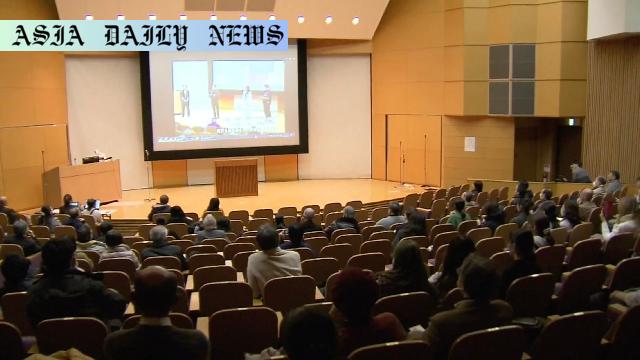Nuclear Abolition: Strengthening global dialogue and cooperation through innovative proposals in Tokyo’s international forum.
- The Tokyo forum proposed advancements for nuclear abolition strategies.
- Discussions emphasized ethical and environmental concerns with nuclear weapons.
- Participants suggested strengthening dialogues with pro-nuclear nations.

Introduction: The Critical Call for Nuclear Abolition
In a significant global effort to address the pressing issue of nuclear weaponry, an international forum held in Tokyo proposed transformative ideas aimed at a worldwide nuclear abolition. As the world marks the 80th anniversary of the tragic atomic bombings of Hiroshima and Nagasaki, this forum stands as a strong testament to humanity’s continuous plea for disarmament and a safer future.
Key Highlights from the Forum
The two-day gathering at a Tokyo university brought together about 90 participants, including atomic bomb survivors (Hibakusha), scholars, and advocates from Japan and abroad. The purpose of the event was to deliberate and generate proposals for the upcoming UN meeting of States Parties to the Treaty on the Prohibition of Nuclear Weapons, scheduled to take place in New York next month.
Among the central issues discussed, participants underscored the importance of providing comprehensive assistance to those affected by nuclear bombings and tests. This includes addressing the continued health, economic, and sociopolitical challenges that survivors face. Furthermore, the forum emphasized the environmental consequences of nuclear tests, calling for effective international policies to mitigate the damage and prevent future harm.
Proposals Targeting Policy and Advocacy
To enhance the efficacy of the UN treaty banning nuclear arms, one of the forum’s core recommendations was initiating dialogues with nations that still rely on nuclear deterrence policies. These dialogues aim to vividly communicate the inhumane impact of nuclear weapons, challenge the efficacy of deterrence narratives, and inspire global reevaluation of nuclear strategies.
Tanaka Terumi, a co-chair of Nihon Hidankyo, highlighted that this forum marks the beginning of a year-long campaign to strengthen societal views against nuclear proliferation. Tanaka conveyed a hopeful vision of young people actively partaking in the nuclear abolition movement, their voices fostering a shift in global public opinion towards peace and disarmament.
Environmental and Ethical Concerns
Another striking focus of the forum was the environmental impact of nuclear activity. Historical nuclear tests have resulted in radioactive contamination, which in turn affects global ecosystems and human health. By addressing these issues, the proposals aim to further emphasize the ethical and environmental dimensions of nuclear disarmament.
The Role of the Youth in Transforming Public Sentiments
Participants put strong emphasis on the role of younger generations in advocating for nuclear abolition. By integrating youth-led movements into mainstream advocacy, the forum aims to create a stronger, more sustainable challenge to longstanding nuclear policies. This generational effort is expected to not only amplify the message but also pave a future-oriented road map for disarmament.
Conclusion: A Landmark Initiative for Disarmament
As the nuclear abolition forum in Tokyo has demonstrated, the fight against nuclear arms is multifaceted and requires commitment, collaboration, and creativity. The event laid the groundwork for meaningful exchanges at the UN meeting while underscoring the broader need for humanity-centered policies. Moving forward, these proposals could play a pivotal role in shaping future global nuclear strategies.



Commentary
The Timely Importance of Global Nuclear Abolition
The international forum’s discussions in Tokyo serve as a stark reminder of the heavy burden humanity carries due to the existence and use of nuclear weapons. As we reach the 80th anniversary of Hiroshima and Nagasaki’s bombings, it is imperative to reflect on history’s lessons and commit to a future without such devastation.
Proposals and the Path Forward
The proposals generated from this forum are not only thoughtful but also crucial in confronting the deeply entrenched systems that perpetuate nuclear proliferation. Dialogues with nations reliant on nuclear arms present an opportunity to address the human, ecological, and security implications of nuclear policies from a place of empathy and reason. Such conversations need to be encouraged to move beyond fear-based deterrence strategies and toward disarmament frameworks.
Youth as Catalysts for Change
One of the most inspiring highlights from this forum is the involvement of younger generations in the movement toward nuclear abolition. The energy and creativity they bring can undoubtedly transform societal opinions, creating a wave of change that policy-makers cannot ignore. This inclusion is a reminder that the fight against nuclear weapons is not just geopolitical, but deeply personal, spanning across demographics and generations.
A Collective Responsibility
Ultimately, the responsibility for a nuclear-free world lies with all of us. Governments, organizations, and citizens must align on this shared mission, fostering collaboration and resilience in the face of obstacles. This forum is but one step, albeit a significant one, in a larger movement that demands continued advocacy, education, and action to prevent future generations from bearing the devastating consequences of nuclear armament.